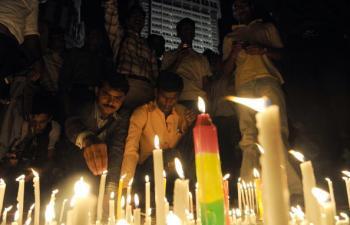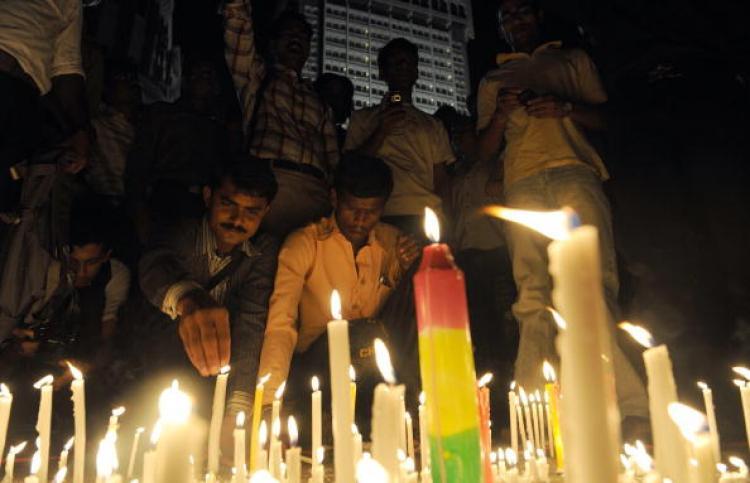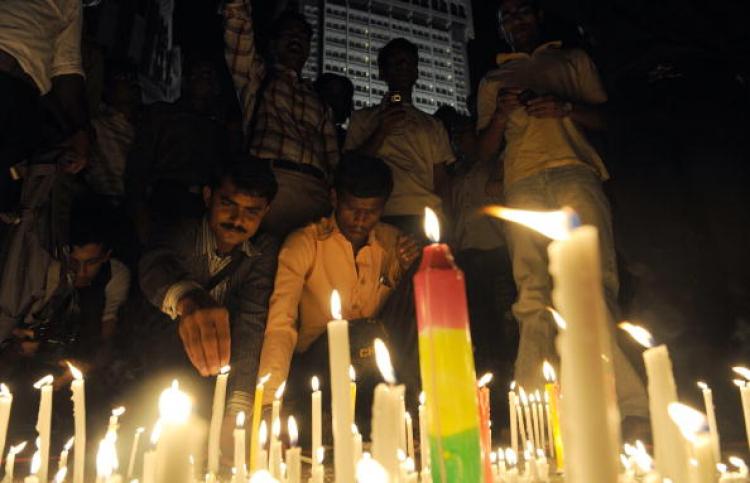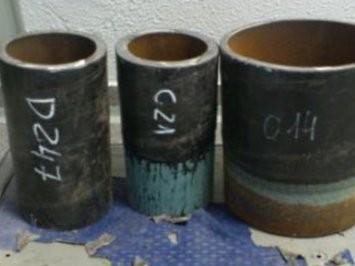The only gunman captured alive during the deadly 2008 attacks in Mumbai, India, was sentenced to death on Thursday by an India court.
If the sentence will be confirmed by a higher court, the 22-year-old Mohammed Ajmal Kasab will be executed by hanging. The Pakistani national was convicted of murder, waging war against India and terrorism offenses.
“In the court’s opinion, Kasab has no chance to reform. Keeping such a terrorist alive will be a lingering danger to the society and the Indian government,” India’s media reported, citing the verdict.
The surveillance cameras captured Kasab shooting at people with an automatic weapon at a railway station. He was found guilty of killing 52 people during the siege.
Ajmal Kasab confessed that the attackers belonged to the Lashkar-e-Taiba (or “Army of the Righteous”), the Pakistan-based militant organization. He later retracted the confession, saying that he was forced to do it, but according to the judge most of his statement was confirmed by the evidence.
The massacre in the India’s most populated city left at least 166 people dead and more than 300 injured. The coordinated attack, which lasted for three days, consisted of shootings and bombings in more than ten different locations, including three Mumbai hotels, a railway station, a restaurant and a cinema.
Kasab was the only one of the ten heavily-armed gunmen who was captured by the police and survived the assault, which caused the peace talks between India and Pakistan to be halted.
If the sentence will be confirmed by a higher court, the 22-year-old Mohammed Ajmal Kasab will be executed by hanging. The Pakistani national was convicted of murder, waging war against India and terrorism offenses.
“In the court’s opinion, Kasab has no chance to reform. Keeping such a terrorist alive will be a lingering danger to the society and the Indian government,” India’s media reported, citing the verdict.
The surveillance cameras captured Kasab shooting at people with an automatic weapon at a railway station. He was found guilty of killing 52 people during the siege.
Ajmal Kasab confessed that the attackers belonged to the Lashkar-e-Taiba (or “Army of the Righteous”), the Pakistan-based militant organization. He later retracted the confession, saying that he was forced to do it, but according to the judge most of his statement was confirmed by the evidence.
The massacre in the India’s most populated city left at least 166 people dead and more than 300 injured. The coordinated attack, which lasted for three days, consisted of shootings and bombings in more than ten different locations, including three Mumbai hotels, a railway station, a restaurant and a cinema.
Kasab was the only one of the ten heavily-armed gunmen who was captured by the police and survived the assault, which caused the peace talks between India and Pakistan to be halted.
India hasn’t officially banned capital punishment, but no execution has been performed since 2004.






